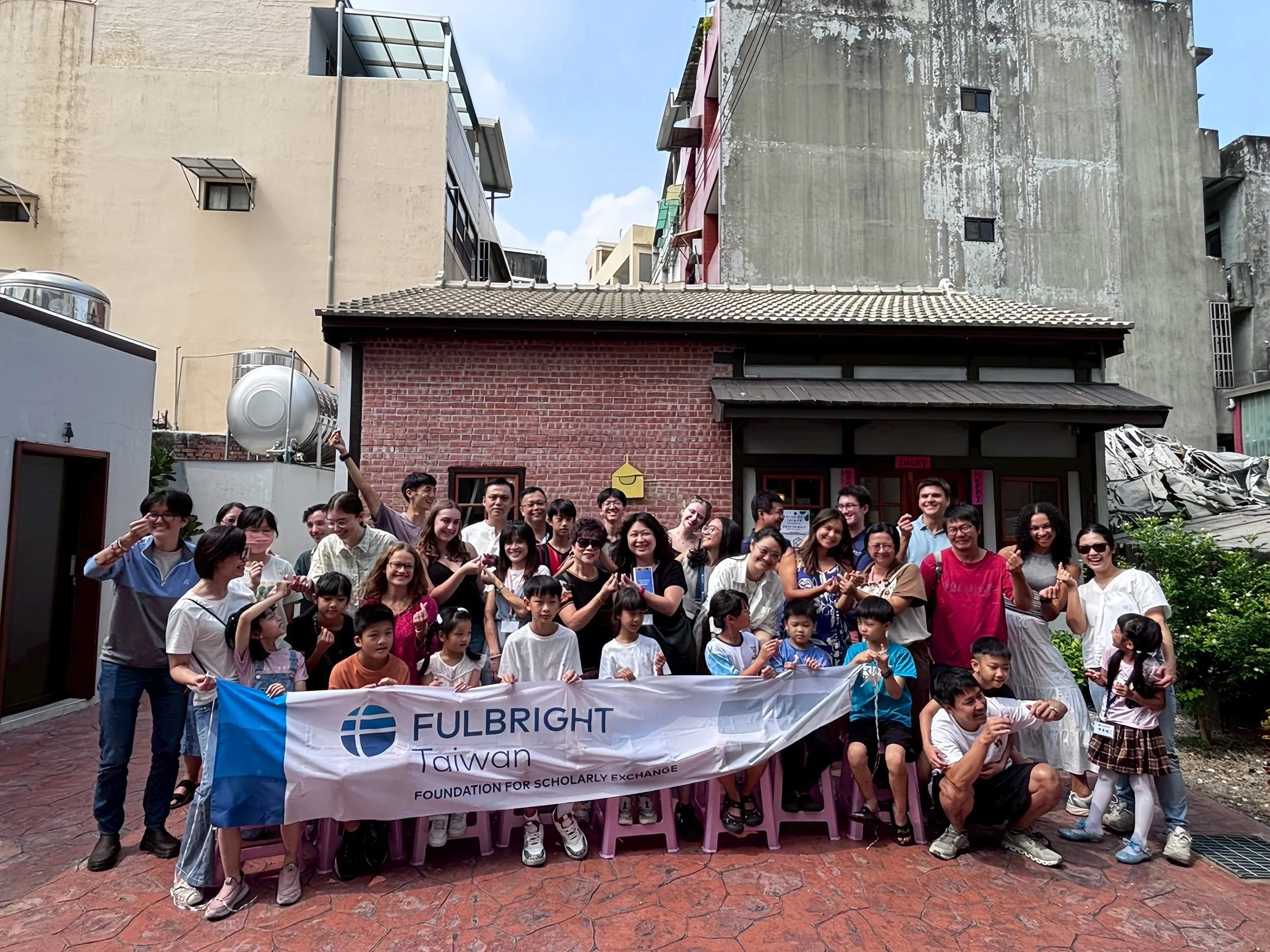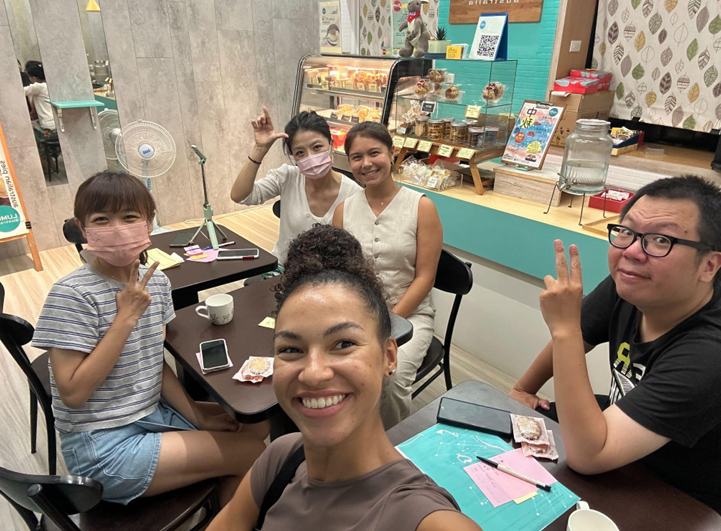Taiwan's Education Background
Confucianism has greatly shaped Taiwanese culture and its highly competitive education system. Tests, competitions, and their results are very important. The most important test is the Joint Entrance Examination, which determines entrance into college. The pressure to attend a top-ranked university continues to greatly affect adolescent life. The school a student is attends is of much greater importance than how the student actually performs at the university level and is also thought to indicate (and influence) the student’s job prospects. As a result, there is an enormous amount of pressure on high school students.
Students begin to feel academic pressure at a young age. Attendance at a competitive high school is determined by scores from tests taken in junior high school, and elementary school students need to prepare for tests similar to U.S. standardized tests, which include an English test. Outside of regular school hours, many students attend cram schools for subjects like English, mathematics, and natural sciences. In general, children in Taiwan begin worrying about school, exams, and homework at a much younger age than their U.S. counterparts.
Taiwan’s education system has been criticized for placing excessive pressure on students and eschewing creativity in favor of rote memorization. Still, Taiwan’s literacy rate is over 96% and the system produces pupils with some of the highest test scores in the world, especially in the fields of math and science.
Elementary School
Students spend six years in elementary school, which begins in first grade and ends in sixth grade. Classes are held Monday through Friday, typically from 7:30 am through 4:00 pm (or noon on Wednesday). Primary subjects include Mandarin, mathematics, science, social studies, and English. Music, art, and additional language classes (Taiwanese or Hakka) frequently supplement the curriculum.
As in middle school, students are typically assigned to the elementary school closest to their registered place of residence. This leads some parents to file their children’s household registration with other relatives or friends for the purpose of sending them to better schools.
Middle School (Junior High)
As middle students in Taiwan will face their senior high school entrance exam in every May, the English classes will be focused on more textbook and test-oriented practice. Therefore, ETFs & ETAs will be expected to be more active to provide teaching ideas and might do some solo teaching (with a LET to help aside) after discussion with LETs. In short, ETF/ETA who wants to enjoy more English conversation interaction with students or interested in seeking more actual teaching expereinces for future teaching career, will feel more suitable and comfortable teaching in middle school.
School Culture
When you first arrive at your school, other teachers, staff, or administrators might not immediately approach you. There is a chance you could feel like you are being ignored, or going unnoticed. This is not the case; your presence is noticed but some people are shy. You may just have to make the first move by integrating yourself into the school’s culture. A good way of initiating contact with others is sharing food.
There are many good reasons why you should try to integrate yourself into the culture. If you are familiar with a few of the school’s staff members or your LET, the school may indirectly communicate with you through them. Communication may be more open this way, as information, advice, or concerns may be communicated through them to you, as others may feel more comfortable having someone else you know in the school talk to you.
Additionally, you can ask school friends for advice, given their familiarity with the school and its culture. Many things in the school will go unsaid, or, if they are said, they are said in Chinese. Many situations have backstories. If you talk to a number of sources at school regularly, you will stay more informed and have a better sense of your surroundings.
You will find that you have very little alone time at school. There is a great deal of interaction between teachers and between teachers and their students. Actively try to understand the social environment. Try to see what your LET is doing in the classroom, what kind of constraints, goals, and needs they have, and how you can help them out with the skills you possess. Be flexible in your perception of your role in the classroom.
Changhua ETA/ETF School
2018-19 8 schools in Changua ( 5 elementary; 3 Junior High).
2019-20 11 schools (6 elementary; 5 Junior High).
2020-21 19 schools (14 elementary and 5 Junior High)
2021-22 9 schools ( 4 Elementary; 5 Junior High) / additional 8 ETF schools
2022-23 10 schools (10 Elementary+ 8 Junior High) /additional 8 ETF schools
2023-24 10 schools (7 Elementary+ 3 Junior High) /additional 8 ETF schools
2024-25 11 ETA schools (8 Elementary+ 3 Junior High) /additional 9 ETF schools
2025-26 : 16 Elementary school & 5 Junior High
Moreover, to expand ETA/ETFs’ creative teaching and cultural exchange influences in Changhua, each ETA/ETF may teach more than 1 school depending on every year’s project.
Do you co-teach or do you teach more independently in Changhua?
Co-teaching requires cooperation and compromise between both the ETA and LET. Co-teaching allows there to be a better student-to-teacher ratio; and, since most ETAs have had limited previous teaching experience, working with an LET is a great introduction to teaching EFL (English as a Foreign Language) in Taiwan. Your co-teacher has more familiarity with the course materials and with students’ needs. On the other hand, as an ETA you will bring American cultural knowledge and native fluency to help foster a more authentic language learning environment. As mentioned above, compromise is a huge component of co-teaching. You may not always be able to accomplish everything you would like to; your LET may believe that there isn’t enough time for every activity that you want to try; and, it takes time to build rapport with your co-teacher and your students. However, when conflicts, misunderstandings, and miscommunications arise, you should not take it personally. It is not necessarily a reflection of your own or your LET’s teaching ability. Co-teaching requires patience and practice and is part of the cultural exchange you'll experience during your time in Taiwan.
In Changhua, schools that have ETA/ETFs in consecutive years are more used to co-teaching and lesson planning, but it still depends on how you and your LET are discussed. However, since ETA/ETF in Changhua might be placed in Junior High they need to have more independent teaching like the “one teaching and one assist” model. And just a heads up, every year we will have new schools to join the ETA program that you might need to be the pioneer of bringing the ETA/ETF spirit into the new schools!
What is the role of Chinese in the English classroom?
The use of Chinese varies and typically depends on the LET. Usually, in Changhua, most LETs encourage students to speak only English in the classroom. To know Chinese is of course a plus for you to get to know your students more, but as an ETA/ETF you do not necessarily need to know Chinese or use it in class.
How many hours do I need to teach in my school?
Each ETA/ETF has about 12-16 teaching hours in their main/pair schools; However, ETA/ETF will be paired up as a group to visit different schools every Thursday for the “ON THE Go“ project in Changhua County for a one-day English activity.
Elementary Schools
(Please note the schools may be slightly changed due to government cooperation)
明湖國小 MIn Hu Elementary School
萬合國小 Wen He Elementary School
寶山國小 Boa Shan Elementary School
圳寮國小 Zun Lioa Elementary School
潮洋國小 Chao Yang Elementary School
豐崙國小 Fung Lung Elementary
芙朝國小 Fu Chao Elementary
西勢國小 XiShi Elementary
芬園國小 Feng Yuan Elementary
員林國小 Yuanlin Elementary
明禮國小 Ming Li Elementary
Junior High Schools
(Please note the schools may be slightly changed due to government cooperation)
As Junior high students in Taiwan will face their college entrance exam, the English classes will be focused on more test-oriented practice. Besides, some ETA will need to do some solo teaching time by time after discussion with LETs. Therefore, ETA who has more teaching experience will feel more comfortable teaching in Junior high.
二水國中 Ershui Junior High School 芳苑國中 Fang Yuan Junior High
溪州國中 Xi Zhou Junior High School 彰化藝術高中 Changhua Arts School ( Junior section)
鹿鳴國中 LU MING Junior High School
Other English Projects
On The Go
To expand the English influence on students in Changhua County, the Changhua English Resources Center (CIEETRC) set up an “ON THE GO“ project for ETAs/ETFs to visit those schools that are not cooperating with Fulbright Taiwan each year. By allowing ETAs/ETFs to interact with students outside the ETA program, we hope students all in Changhua County would receive more American cultural experiences and interact with ETAs/ETFs.
Each Thursday, CIEETRC will assign ETAs/ETFs to visit different schools. ETAs/ETFs must prepare their free lessons such as storytelling, fun activities, songs, or any cultural content. The best part of this project is, that ETAs/ETFs don’t need to follow textbooks and can have more interaction with students.
Changhua County Wide English camp
In Changhua, for bringing more culture and increasing the chances to communicate with local students, Changhua’s ETAs and ETFs lead and organize the County Wide English Camp. With the support from CIEETRC office, (Changhua international education and English teaching resources center) ETAs and ETFs be able to design logo, teaching materials and activities by themselves. The purpose of the county wide English camp is bringing local American culture to the students, let Students experience different cultures such as music, dance or recess activity. The county wide camp usually gets held in the 2nd semester. Here are the English camps information sharing:
2018-19 All American Road Trip (held in Yuanlin Elementary)
2021-22 All American Field Trip
(held in 田中國中)
Changhua County Billingual Eduaction Fair
(meet with County Mayor-Mrs. Wang, Hui Mei)
Host Family
2025-26 Hostfamily Card Matching Game Meetup
Lumos English Night
Amelie and I hosted this week’s English Night! Our topic was “If your life were about how we would capture our lives in a film, including the genre, major plot points, characters, and conflicts/resolutions. Everyone was so creative! — AnLing, 2025-26 ETA
















